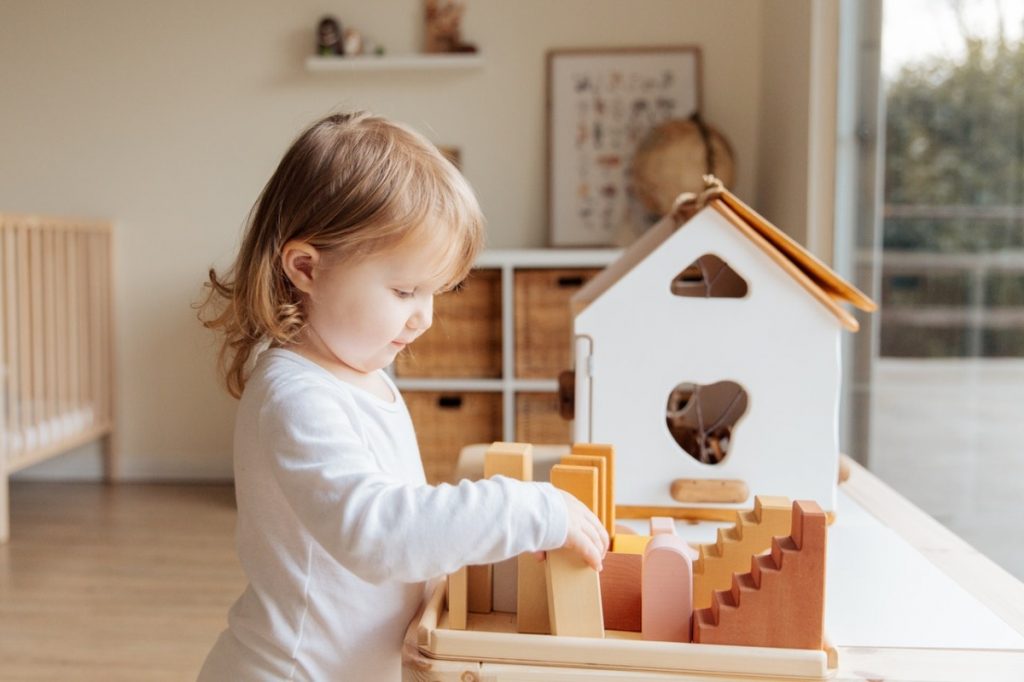It is said that the first three years of a person’s life are the most crucial as it is when the brain grows at a rapid rate. During these years throughout early childhood, we use our senses to explore the world and make sense of the things around us.
We mainly do this by touching, seeing, smelling, tasting, hearing, touching, and moving. Even as we grow older, the best way to retain information and learn new things is to engage our senses.
Importance of Sensory Play to a Child’s Development
If you are not aware, most of our fond memories are actually associated with one or more of our senses. For example, a floral, fruity scent could remind you of your childhood bedroom, or a song you know by heart reminds you of a friend from high school.
When any of your senses are stimulated with familiar stimuli, our brain triggers a flashback memory.
We all know about our five senses, right? Sight, smell, taste, touch, and hearing. But there are actually two other more that we commonly miss. These are body awareness and balance.
Body awareness (known also as proprioception) pertains to the signals that our brains receive from receptors in our muscles and joints that allow us to sense where our bodies are in space.
On the other hand, balance refers to the sensation that our vestibular system picks up that makes us aware of our body’s position in relation to gravity.
By presenting opportunities for your kids to actively use their senses, you help build strong neural pathways in their brains. Doing this fosters a child’s ability to handle complex learning tasks. It also helps in cognitive growth, gross motor skills, language development, problem-solving skills, and social interaction.
There are countless ways to do it. You may use play-doh, construction toy sets for kids, or simply allow them to play outside and experience nature at its finest. All these sensory plays enhance your child’s cognitive development.
Key Benefits of Sensory Play
1. Brain Development
As mentioned, allowing your child to engage in sensory play is beneficial in strengthening their brain development. Sensory play is crucial for learning as it helps in boosting memory and the ability to tackle complex learning tasks.
2. Language Development
Sensory play also helps in developing your child’s language development. Allowing them to engage in any sensory play activity pushes them to effectively communicate with others while playing.
3. Fine & Gross Motor Skills
Children learn to identify objects during tactile sensory plays such as handling pets, forming shapes with play-doh, and finger painting. These activities are crucial as it helps develop their fine and gross motor skills. These include pushing, pulling, throwing, and squeezing.
4. Problem-Solving Skills
Children can develop their problem-solving and decision-making skills as they experiment with various objects during their sensory play. At an early age, they will hone their ability to figure out solutions to any challenges they encounter during their play.
5. Cognitive Growth
Through sensory play, a child’s cognitive growth is enhanced. The thought process is developed so as their reasoning and understanding. New concepts are discovered whenever they are presented with new play materials. This development proves to be handy as your child grows older and has to face real-life scenarios.
6. Social Interaction
As children engage with sensory play, they interact and work with other kids. This social interaction is crucial as it teaches your child the value of cooperation, sharing ideas, and friendship at an early age.
Kids who are well-adept in working with others can easily adjust as they grow up. They tend to be more sociable, enjoy team sports, and build healthy relationships with people around them.
7. Awareness
As mentioned, in addition to our five sensory organs is our proprioception. Children who engage in active sensory play tend to be more self- and body-aware. They have better spatial perception.
It is said that individuals who have a good grasp of the space around them have no difficulty parking in tight spaces and organizing stuff in limited spaces.
8. Comforting
Sensory play is also beneficial for children who are anxious or restless. Therapeutic sensory plays help these kids feel calm. Light-up toys, therapy balls, and calming tactile or visual stimuli are used during this kind of sensory play.
9. Adaptability
Sensory plays are essentially “training” for your kids. These plays teach them how to adapt to new situations. As it improves the brain’s plasticity, when your child encounters a similar scenario in real life, he/she can immediately respond to such.
With sensory plays, children learn to trust and understand the various textures that they encounter, helping foster positive neural pathways in the brain. Ultimately, these experiences in early childhood will help shape the choices and behavior of your children as they grow up.


